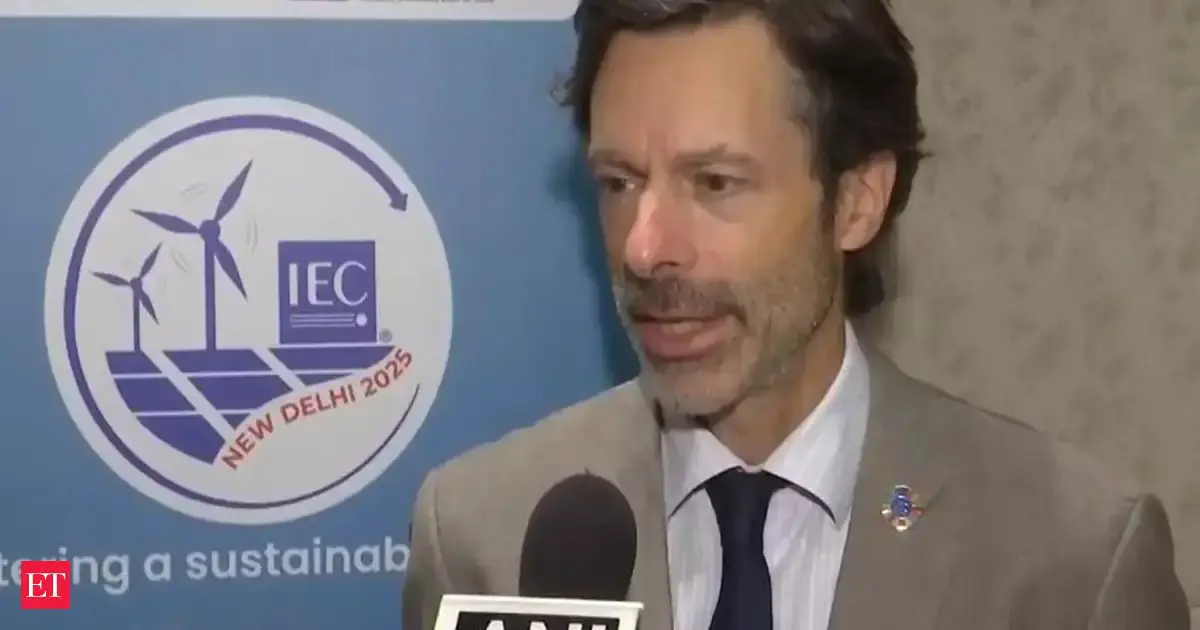
In August 2002, Good Charlotte offered a bit of eat-the-rich prescience with their single “Lifestyles of the Rich and the Famous.” “If money is such a problem / Well, they got mansions / Think we should rob them.” The song was basically Robin Hood’s ethos run through a pop-punk filter, and it was a massive hit for the little band from small-town Maryland. More than 20 years later, Good Charlotte’s founding twin brothers, Joel and Benji Madden, are, well, part of the rich and famous. The former is married to Nicole Richie, the latter to Cameron Diaz, and the two now run an array of businesses. But in April 2023, after some time away, it was time to prove their rock bona fides again by playing their first gig in four years.
The occasion was elite: the wedding of Joel’s sister-in-law Sofia Richie and Elliot Grainge, son of the Universal Music Group chairman and CEO Lucian Grainge and now head of Atlantic Records. The setting was luxe: Hotel du Cap-Eden-Roc in the French Riviera. Viral videos from the performance showed the brothers’ famous wives dancing to their set. The event was so monumental that their latest album, and first in seven years, Motel Du Cap, is named in homage to that night.
That high-low duality has always been at the heart of Good Charlotte, say the Maddens, who became mainstays of the Warped Tour, MTV’s Total Request Live, and early-aughts gossip blogs after their self-titled 2000 album. The group served as the faces of radio-friendly pop-punk for nearly a decade and went platinum many times over. (Aside from the Maddens, Good Charlotte includes guitarist Billy Martin, bassist Paul Thomas, and drummer Dean Butterworth.) In addition to “Lifestyles of the Rich and the Famous,” Good Charlotte’s numerous other hits from that era included “The Anthem,” “Girls & Boys,” and “I Don’t Wanna Be in Love (Dance Floor Anthem),” all of which were defined by their earworm-y melodies, churning guitars, and a mixture of sarcasm and sincerity in lyrics about the Maddens’ past, their relationship dynamics, and, of course, money.
“Are we making fun of what people think?” says Benji. “Or are we making fun of what people think of us? Maybe it’s both,” adds Joel. While on our video interview, the two wear complementary versions of what is essentially the Good Charlotte uniform — long black T-shirt, from which tattoos peek out, and baseball caps, Benji’s white, Joel’s black. They tend to finish each other’s sentences as they prod one another for shared memories. Good Charlotte is now just one part of the twins’ MDDN empire, which also includes the streaming platform Veeps and the magazine Alternative Press (the band was on the cover in 2010, and they bought it in fall 2020), and their music has grown, too, turning more contemplative and appreciative for their families and their success. Here, the Maddens discuss more than 25 years of making music together and their fondness for zigging where record executives and critics wanted them to zag.
Song that invented Good Charlotte
Benji Madden: “Little Things.”
Joel Madden: “Little Things.”
BM: It doesn’t really fit into a genre, exactly. We’ve always been really happy to bend genres and always been curious to try all kinds of different things musically — especially when we weren’t thinking, and we were just doing. That’s when we’ve always been the strongest. And I think that first record, first song, we came out of the gate just pretty genuinely excited to just be ourselves.
JM: “Little Things” is like the acorn of the now oak tree which is Good Charlotte. There’s a deeper meaning to the song, but also, a lot of it feels throwaway. It’s about going through some painful things that make funny stories, and they leave you with these little things that make you who you are and that are also maybe deeper and more painful than you thought they were at the time.
BM: It’s dark — very dark — but put in a very nursery-rhyme, paint-by-numbers sort of way. That delivery was very genuine and vulnerable, while at the same time confident. Looking back now as grown men, you realize how much those kids were fighting depression and lack of self-esteem and all these things that now you can see. You just want to put your arm around those kids. It’s a very innocent record, going into a big, bad world of all kinds of criticism. It’s very sweet and very genuine.
JM: And fun!
BM: I think we’ve tried to keep that part of us alive all these years and not let ourselves get jaded by adulthood and the world. That’s something that’s been a strength of ours, to actually stay vulnerable, and even if someone has a feeling, a thought, a criticism, or makes fun of you, to take it in stride, to stay positive and happy.
JM: Just be yourself.
BM: That’s a great headline for that song, and that’s the deeper meaning.
Song that best captures Good Charlotte
BM: “The Anthem.” By that record, we’d left a really small town and went into the world. We were still very green. We were immature enough to not really quite understand, or be overwhelmed by, some of the aspects of business and life. We still sang and wrote unconsciously, and that was us digging in a little bit more and stating our mission. We became a band through that process of the first album: going on tour, going right back in the studio right off of the tour. The process is always me and Joel and an acoustic guitar. I would start playing a riff, and Joel would just blurt out lyrics and melodies. We have a shorthand from having written our first song together, before we could play anyone else’s songs. We didn’t even call it songwriting. We just called it “making up our own.” [Laughs.] That’s how green we were. “Let’s just make up our own,” you know? “The Anthem,” that was the first song for The Young and the Hopeless, and it happened very fast, and the rest was just going with producer Eric Valentine and finishing it.
Biggest crowd-pleaser at live shows
JM: “Lifestyles of the Rich and Famous.” Always. We go big. There’s a lot of parts for the audience to participate in. I think it’s a nostalgic song, and people just like that. People think, “It was a simpler time, wasn’t it?” The recording is truly unique, but live, it sounds like a big old fun rock song.
Most Maryland song
JM: This is my favorite question of the day.
BM: The song “There She Goes,” off Cardiology. That song’s about our mom. When I hear the chorus of it, it reminds me of a specific time that was really confusing. That’s our fifth album, and we were feeling a little lost. The lyric is, “There she goes / So beautiful / But she’s flying back home to Maryland,” and it strikes a little chord in my heart of missing home. It was written before I had my family and after a really nonstop run. Back in 2010, the industry was changing. We came out in the late ’90s, and our first record came out in 2000. It’s a big gap from there to 2010. That time was confusing as a young man.
JM: We’re ambitious guys. We moved to L.A., we’ve built businesses. But in our private conversations, when we’re just dreaming together, and we’re contemplating the risk and the possibilities, we’ve always said, “Well, we could always go home,” and I would be very happy. That allows me to feel comfortable out here, because I don’t know if I’ve ever felt completely at home, even though I’ve been in L.A. for 20 years. I speak the language, I love the place. I’ve got family and friends here; I’ve got in-laws here. I’ve got real roots here. But when I drive down a road, I don’t know the trees. When I go home, I know the trees. I know the scenery. It comforts you. I know the people at home. L.A. was a little bit jarring at first, and when we made that record and wrote that song, we’d only really been here a few years. We were making sense of everything.
Song that was the biggest risk
BM: Probably “I Just Wanna Live,” “Dance Floor Anthem,” and “Keep Your Hands Off My Girl,” which are all songs that experimented with genre. Whatever people thought when they came out, now, however many years later, those ended up being really important records for us. Longevity means not being stuck in one place with the expectation of the same thing, and that’s always been important to us.
JM: I was always calling back to bands that I loved and moments they had that were unique. With “Dance Floor,” I wanted to do something that felt fun and super-pop, and that’s what I was going for personally when I wrote it. It was uncharacteristic to a pop-punk band, or whatever people were thinking we were. Modern bands that I admired at the time, like the Killers, there were little bits and pieces of lots of stuff in there that I think were inspired by them.
BM: We had also started DJ-ing. It was us and Steve Aoki on Sunday nights in L.A., and we were doing all these little parties. We were experimenting with synthesizers. We’ve always had this instinct that if we push the boundaries, even if people don’t understand it now, they might one day.
Song that was the biggest “fuck you”
JM: Gosh, they’re all a little bit of a “fuck you.” [Both laugh.] Hate to say it!
BM: And the funny thing about that is that we’re not really a “fuck you” band.
JM: But “I Just Wanna Live” — are we making fun of ourselves, or are we making fun of the music business? “Girls & Boys” — are we making fun of ourselves or are we making fun of the cultural class structure of what money gets you, and the by-product of money and success? Or are we making fun of what people think of us? We’re hyperaware of where we’re from and where we’re at, and the whole ride. I think we were lucky to come from a blank slate in life, where we had only one way to go, which was up. We didn’t know a lot about a lot. We didn’t come into music knowing about fashion or brands or what was the better watch to get or what was the right hotel to stay at. All of it was a learning curve, and an exciting one in some ways. And then on the other hand, you’re like, it’s all kind of silly as well. There’s this strange reality to life. It’s like a duality of context. We’ve never wanted to be owned by anything or anyone, so a lot of our songs are a little bit of a “fuck you” to things. We get really uncomfortable when you start putting a label on us and you start telling us what we are.
Song each twin most associates with the other
JM: The most defining Benj song that I could think of is actually a song on our new record, which I think has been the most successful execution of a song that he’s had. It’s called “Castle in the Sand.” He knew exactly what he was writing about, and he nailed it. I think it’s a timeless song. I think it’ll be played at people’s weddings. In my mind, he’s a true songwriter. He can sit down with the guitar, come out an hour later with a song. We’re not the same kind of songwriter, but we complement each other.
BM: You write hit songs. [Laughs.] I think our song that encapsulates Joel is also on the new record, and it’s “Stepper.” My favorite songs that we’ve done are always these songs that Joel comes in and he just starts spitting lyrics. I immediately go like, “I don’t even know what the fuck you’re doing right now, I don’t know what you’re singing about, but do that. Just keep doing that.” No one else could make that song except for us. It’s the little -isms that you know as his the second he starts singing. Now, whoever we’re in the studio working with, they always just shake their head and they go, “That just sounds like Good Charlotte.” And it’s not incredibly complicated, but it’s incredibly nuanced. There’s a little mix of some flavors in there that are very Waldorf, Maryland: There are some rap vibes in there, there’s some rock, there’s some soul in there. There’s something that’s pedestrian and real regular, but would be hard to replicate. There’s some tongue-in-cheek in there, but also some serious themes. “Stepper” is an interesting one — it’s kind of about being a dad, it’s kind of about being a husband, it’s kind of about being a grown man who’s just getting after it while also acknowledging that your wife is the queen and badass. It’s like, Every day, I’m gonna get up, and I’m gonna go after it. That really encapsulates Joel and how he lives.
Nicole Richie and Cameron Diaz’s favorite Good Charlotte songs
JM: Nicole loves a song that you can’t find because it’s on a Madden Brothers record, Greetings From California, that we took off DSPs. The song is called “California Rain,” and she loved it. She fucking loved that song. It’s a very deep cut. There’s a song on the new record she absolutely loves called “The Dress Rehearsal,” and it’s about our relationship with our father. She really loved my dad, and it touched her.
BM: My wife really likes “Castle in the Sand.” That song meant a lot to her. She loves “Rejects.”
JM: She likes to rock!
BM: She likes to rock, she likes the little guitar solo I do, she likes that heavy riff. I think that was the first song we did on the record, too. When I said, “I think we’re going to make another record. Here’s the song I wrote,” she loved it. She was like, “This is going to be great. I can’t wait to see how you guys finish it.”



